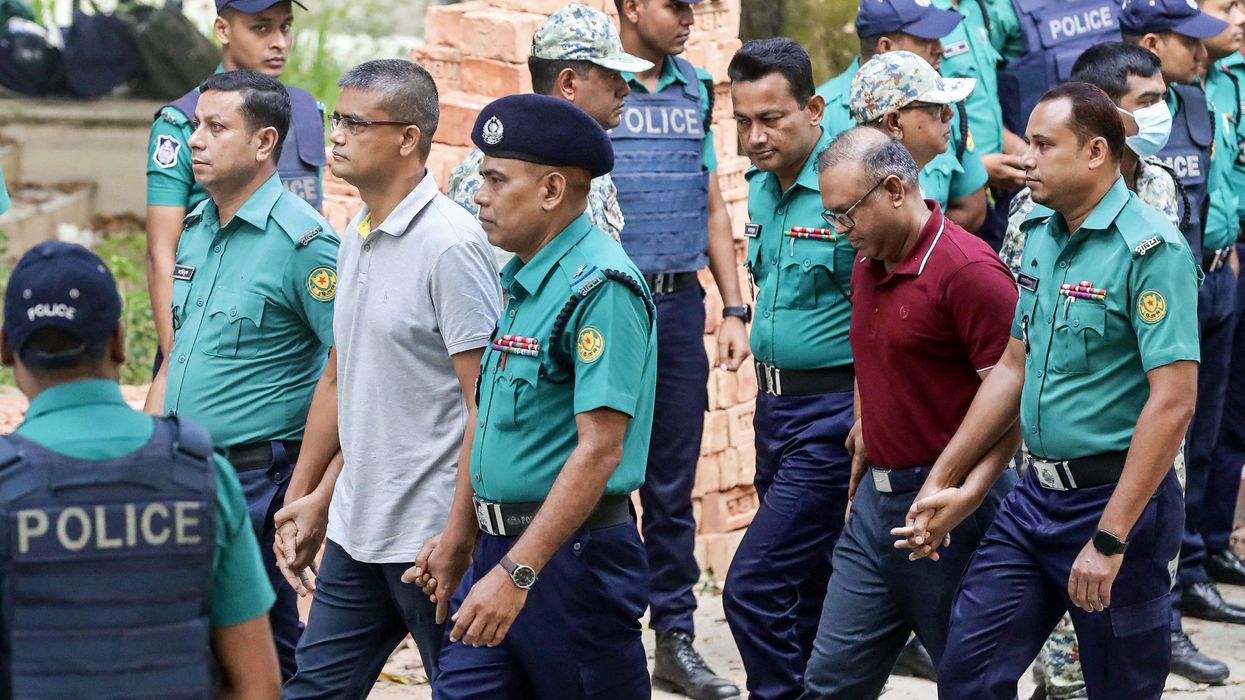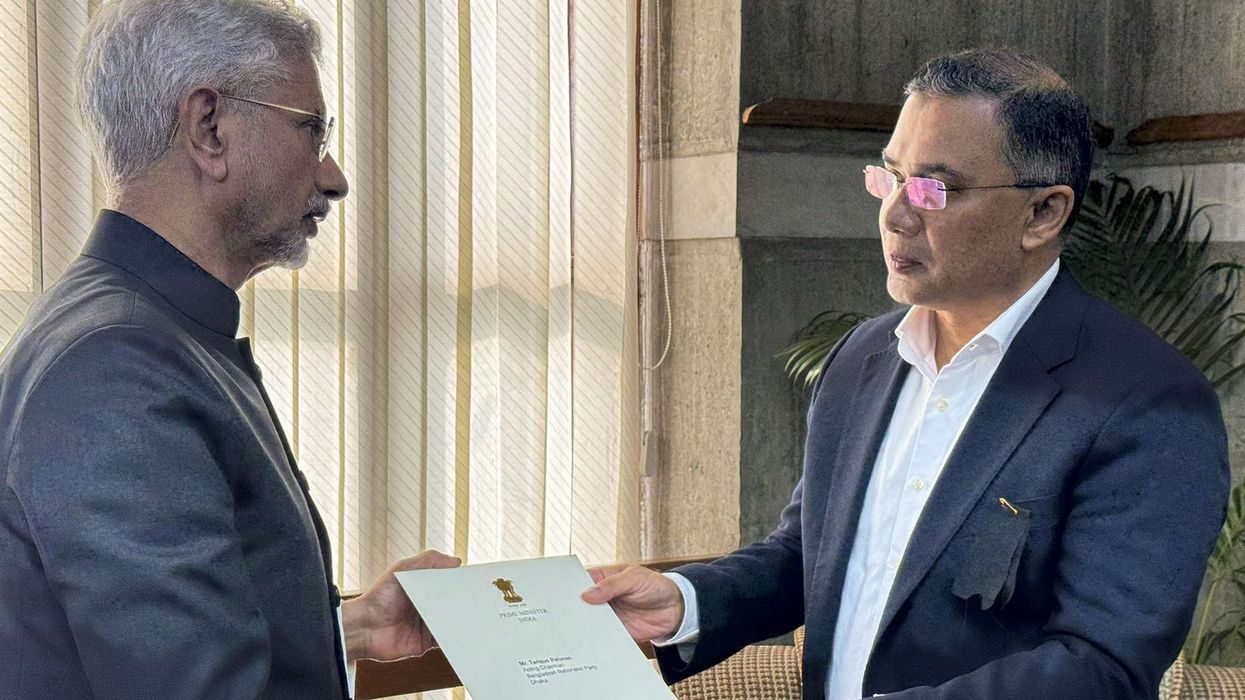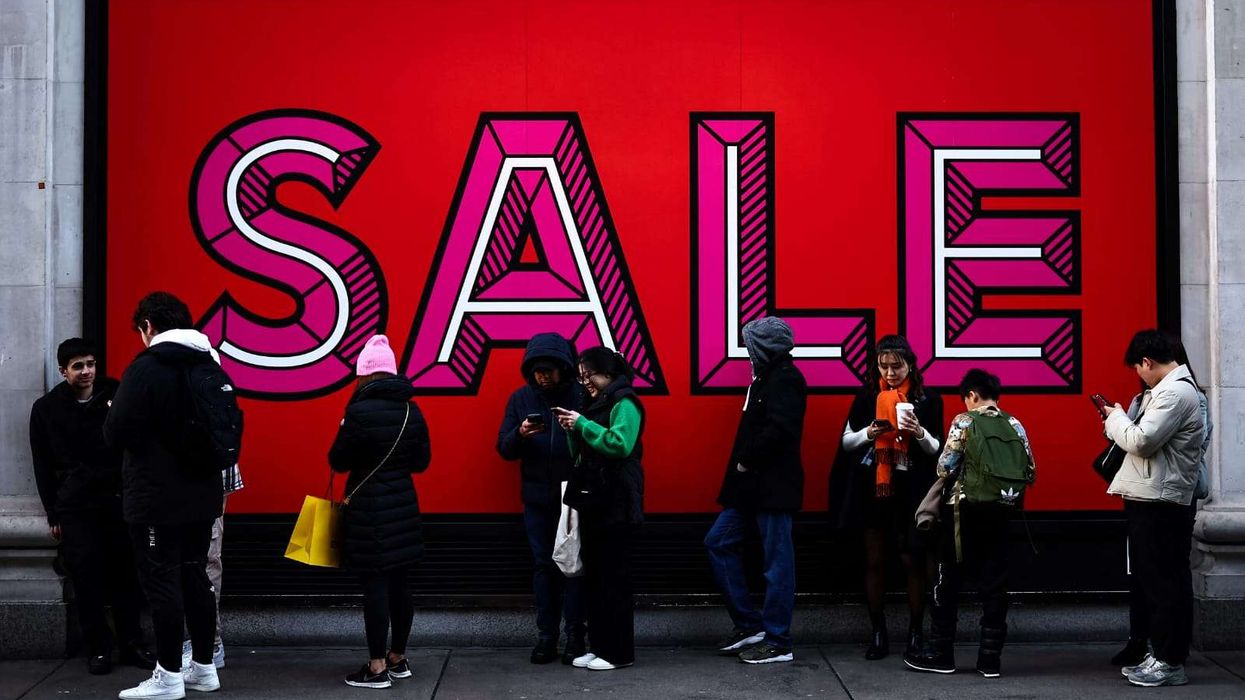A BANGLADESHI court on Wednesday remanded in custody 15 senior army officers on charges of enforced disappearances and atrocities committed during the 2024 uprising that overthrew the government.
It is the first time formal charges have been brought for enforced disappearances in Bangladesh, and the first time so many senior military officials have faced a civilian trial.
The accused, including five generals, are alleged to have operated a secret detention centre during the tenure of the now-ousted prime minister Sheikh Hasina.
All of them previously served in Bangladeshi military intelligence or the paramilitary Rapid Action Battalion (RAB).
Defence lawyer Sarwar Hossain said all the officers rejected the charges.
The army has said it will assist the judicial process, but tensions have remained high since the court issued arrest warrants earlier this month.
"They declared their allegiance to the law of the land and their respect for the judicial process," the court's chief prosecutor Tajul Islam told reporters.
"That was reflected in the cooperation they have extended."
UN Human Rights Chief Volker Turk, in a statement on October 15, said the court process was an important step towards accountability.
"It is a significant moment for victims and their families," Turk said.
The officers were brought to court in a prison van, accompanied by a heavy police presence.
"These officers are confident of their innocence, and believe they will be released through due judicial process," their lawyer Hossain said.
Bangladesh is also prosecuting former senior figures linked to Hasina — now a fugitive in exile in India — and her now-banned Awami League party.
According to the United Nations, up to 1,400 people were killed in clashes between July and August 2024 as security forces tried to suppress anti-government protests.
During Hasina's rule, RAB forces carried out multiple killings, and the organisation was sanctioned by the United States in 2021.
Hasina, 78, fled to New Delhi last year, where she has defied court orders to return to attend her ongoing trial for crimes against humanity related to the crackdown.
Her trial in absentia is in its final stages, with Hasina's state-appointed defence presenting closing arguments. The prosecution has sought the death penalty for her.
Hasina's Awami League says she "categorically" denies the charges.
(With inputs from agencies)












